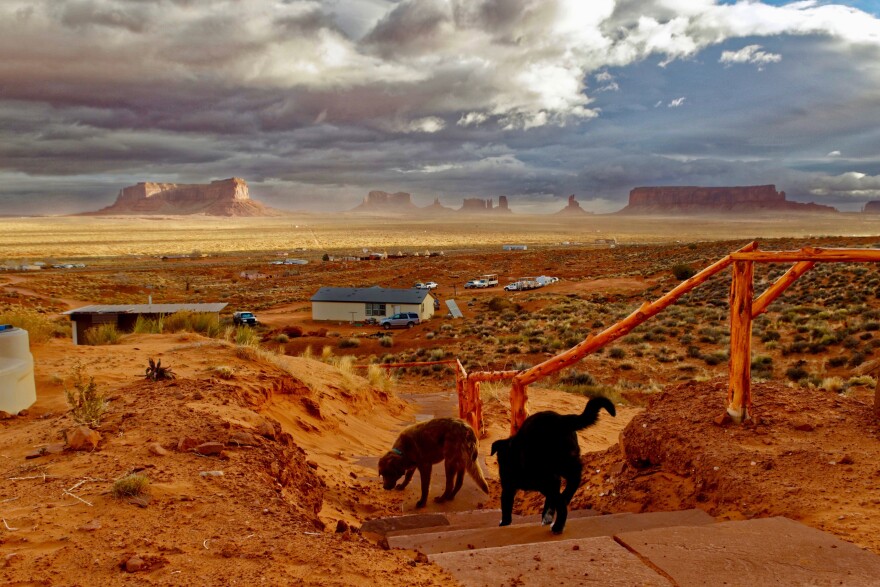In Utah, 66% of households have completed the 2020 Census. But that number drops to 9.5% on the Navajo Nation, where most homes don’t have street addresses.
Residents on the reservation must wait until a packet with an ID number correlated to their home’s location is delivered to their door in order to properly fill out the 2020 Census. But workers who started delivering these packets to homes on reservations across the country in March had to stop just three days into the job, because of COVID-19.
Cathy Lacy, a regional director for the U.S. Census Bureau, said that has contributed to low response rates in many tribal nations.
“We once again began delivering questionnaires in May, and for some of our tribal nations we are still doing that,” Lacy added.
The Navajo Nation is one of them. Around 20% of the 76,000 households on the reservation still have not received their packets, according to Lacy, who said they should all be delivered by the end of July. Once residents receive the packets, they can fill out the questionnaire over the phone, online or on paper and return it through the mail.
Arbin Mitchell, who is in charge of the Census on Navajo, urged members of the Nation to fill out their questionnaires during a Facebook Live event on July 7. At the time, the Nation’s response rate was only 4.9%, which Mitchell attributed to COVID-19 delays.
“We need to increase our numbers,” he said. “This is the very first time doing Census that we can self-respond.”
In the past, most residents of tribal nations have been counted by Census workers who visit each home and conduct the questionnaire in person. But with the new format this year, some tribal nations have invested heavily in incentives and advertisements to encourage their members to self-respond.
Jamie Azure, who chairs the Turtle Mountain Band of Chippewa Indians, said they offered prizes including kids’ games, TVs, iPads and gift cards to local grocery stores to their members who completed the Census.
“Everything we were giving out as incentives ties back to what we are trying to do as a tribe,” Azure said, referring to helping people prepare for outbreaks of COVID-19.
And Brad Gernand, a communications specialist with the Choctaw Nation, said his tribe is spending over $1 million on advertising that encourages people to fill out the form.
“Our chief and leadership believe the Census is so important that we shouldn’t at any point pinch pennies,” Gernand said. “So we’re running radio and TV commercials, we’ve got billboards up everywhere, we’re doing direct mail campaigns, social media, newspaper ads, all of that sort of thing.”
Starting Aug. 11, the Census Bureau will begin sending workers to households that have not completed the Census yet, to help residents fill out the questionnaire in-person. Anyone on Navajo who responded to the Census before receiving their ID number should re-submit the questionnaire, according to officials.
Kate Groetzinger is a Report for America corps member who reports from KUER's Southeast Bureau in San Juan County. Follow Kate on Twitter @kgroetzi
Correction 10:07 p.m. MDT 7/21/2020: A previous version of this story incorrectly stated the percentage of Utahns who had completed the 2020 census. It has been updated with the correct figure.


